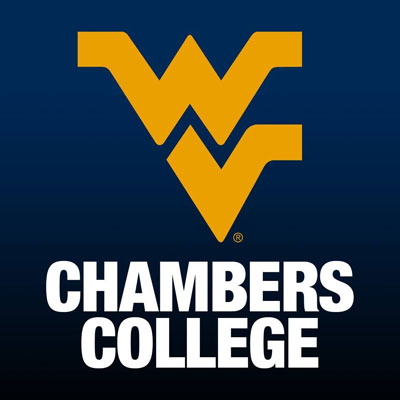Every year in West Virginia, state employees generate between four and five million financial transactions. That’s a credit card swipe or a cash register ding every 7.5 seconds, helping everything from school boards to municipal waste authorities do their jobs.
Occasionally, one of those purchases isn’t serving West Virginians as intended—and that’s where the State Auditor’s Office comes in.
It’s also where West Virginia University accounting students get the chance to learn while serving the state. Undergraduate students analyze big data from purchasing cards, or p-cards, and a graduate-level class helps State Auditor personnel audit select small towns and their finances.
This partnership is unique and doing “incredibly valuable work,” says West Virginia State Auditor JB McCuskey. Speaking to the students at their final presentations in late November, McCuskey said to them, “In government, everything that happens is with tax dollars, and we have a finite amount of money. If you spend one dollar, you’re not spending it on something else. We also have a static set of problems: we have poverty, homelessness, drug addiction, all of these things.”
McCuskey also said to the students, “Your job is actually wildly important because we don’t want to ask people for more money. We want to maximize the usage of every tax dollar.”
Alexander Heggen, teaching assistant professor of accounting in the John Chambers College of Business and Economics, teaches the undergraduate auditing course that analyzed p-card data.
Heggen says students begin by examining the dataset as a whole. They research examples of p-card fraud and misuse from other institutions, then brainstorm ideas to mine for information in West Virginia’s records.
“Then, the gloves are off, and the students have free reign to identify red flags and potential fraud,” Heggen says.
The students’ conclusions do more than stop fraud—they lead to better management and prevention in the future using artificial intelligence. McCuskey says, “We’re building out an AI network, but first we need to know how and why we’re looking.”
“What’s beautiful about putting a problem in the head of a 20- or a 22-year-old is that they look at it completely differently,” McCuskey says.
Ted Svehlik, associate vice president of auxiliary and business services at WVU, says the university’s accounts payable and procurement departments has used some of these findings to add fraud prevention and detection measures to that office.
This semester, student groups identified several interesting leads, such as purchases at pawn shops and payments to vendors outside the country.
Scott Fleming, interim dean of the WVU Institute of Technology College of Business, Humanities and Social Sciences, was the first to teach the undergraduate auditing class in 2018. He says, “Students are working with a client, in an experiential learning environment, and they’re working as teams. They are dealing with real issues that public accounting firms face. This is great for future employers to see.”
In addition, Fleming instructs the graduate audit course. These students grapple with different data: the ledgers and accounting numbers from small towns, volunteer fire departments, and solid waste authorities. The class uses industry-standard audit software, unavailable to most college students but provided through the State Auditor’s Office.
Auditor McCuskey was instrumental in launching the Small Government Monitoring Program in 2017 to help troubled municipalities stay afloat through student-led auditing.
“These students are helping cities develop a system to find trouble, fix it, and develop a system to prevent it in the future,” McCuskey says.
Joshua Hall, Milan Puskar Dean of the Chambers College, says the partnership is a perfect example of the university meeting many of its goals simultaneously.
“Our students, from undergraduate to graduate, not only have the opportunity to immerse themselves in hands-on research, it’s also applied research that gives back to the state. It’s scholarly learning, it’s real-world industry experience, and it’s all in the name of service to West Virginia,” Hall says.

